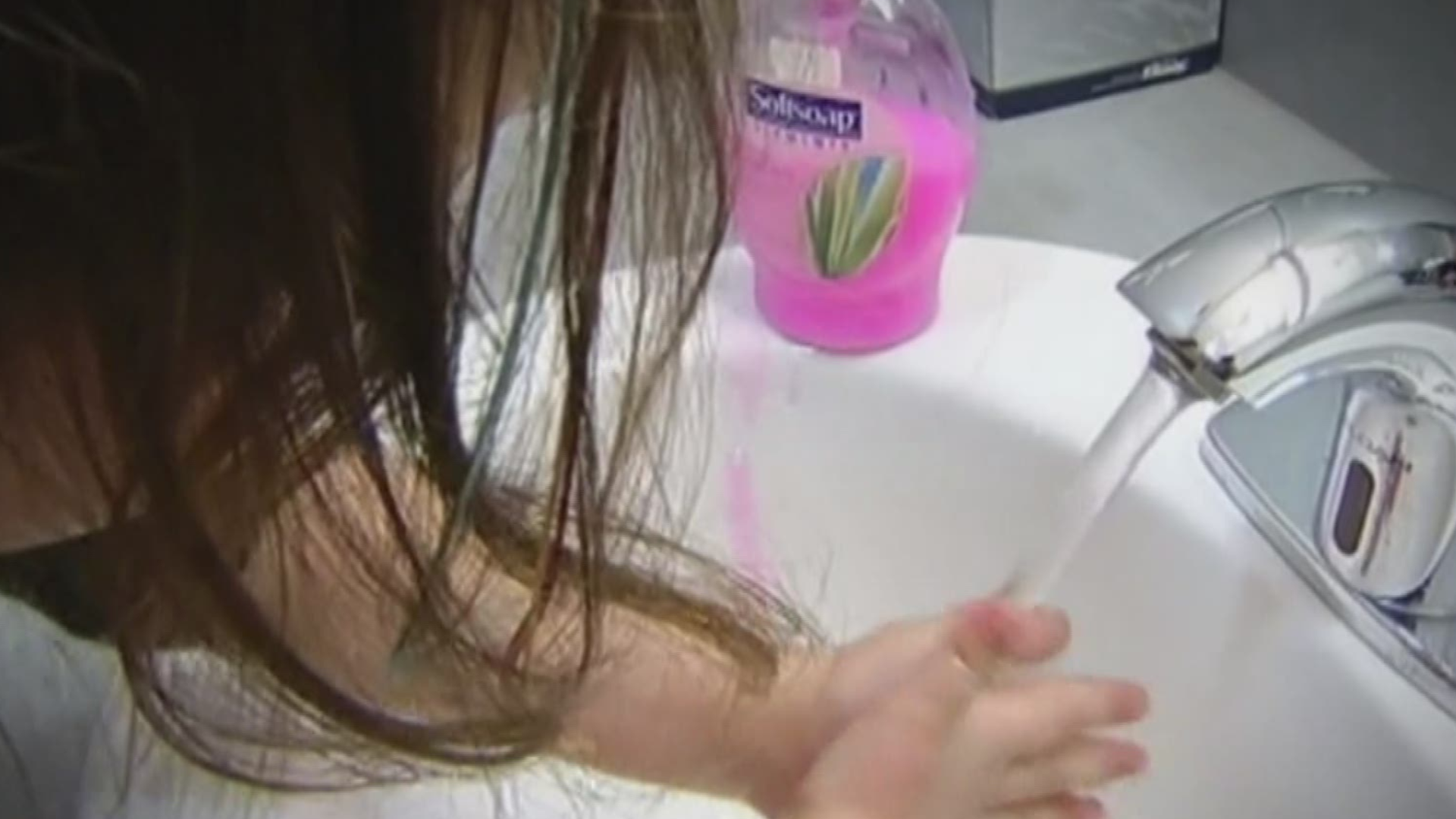ATLANTA — Coronavius concerns continue to grow as more cases are being reported across the United States.
11Alive is Where Atlanta Speaks. We've received inquiries from viewers about the novel coronavirus and prevention. Here's a look at some of the top viewer questions we've received with answers.
The number one question we have received is about masks. One viewer text 11Alive the following question:
"Does it help to wear face masks to not get the coronavirus?"
The shelves that once held several types of masks were empty at one Home Depot 11Alive stopped by on Monday. A company spokeswoman e-mailed the newsroom describing how demand is up at stores nationwide for masks and the company is working to replenish stock quickly.
The U.S. Surgeon General Jerome Adams over the weekend tweeted, "Seriously people- STOP BUYING MASKS! They are NOT effective in preventing general public from catching #Coronavirus, but if healthcare providers can’t get them to care for sick patients, it puts them and our communities at risk!"
11Alive medical analyst Dr. Sujatha Reddy agreed that masks aren't being recommended for people without symptoms, but they're being recommended for others.
"Masks are going to be recommended to people who have symptoms to protect the people around them," Reddy said. "Right now you're probably more vulnerable to influenza or flu virus than you're to COVID-19."
The CDC is recommending people take a series of steps to limit the spread of the virus and to avoid contracting it. The lists include avoiding sick people, staying home if you're sick, washing your hands for at least 20 seconds with soap and water, and disinfecting frequently touched objects.
Here's another popular question from viewers:
"What type of disinfectant will kill the virus?"
"Your standard household disinfectants that we use to kill bacteria and germs should work against the coronavirus," Reddy said.
"When will a vaccine be ready?"
Several 11Alive viewers have asked if about vaccines.
Both the CDC and National Institute of Allergy and Infectious Diseases confirmed a vaccine is in development, with trials underway but a usable vaccine is at least a year away.
On Monday, President Donald Trump and his cabinet met with pharmaceutical companies to discuss how to speed up the vaccine timeline.
"Can I travel?"
A few viewers wanted to know about traveling during the coronavirus outbreak. The U.S. Department of State released advisories for eight locations so far.
The advisories include level 4 warnings for China and Iran, which means travelers shouldn't go to those countries. South Korea, Italy and Mongolia received level 3 warnings, meaning you should reconsider any travel there. Japan, Macau and Hong Kong received level 2 warnings, meaning travelers should exercise increased caution.
The warnings also include information advising against taking cruises to or in Asia.
Dr. Reddy said whether or not to travel abroad to other locations is hard to answer, as new cases are diagnosed in more countries.
"Where you're traveling to while it may be okay right now, in your week or 10-day trip it may change."
"Does no fever mean you aren't contagious?"
"Not having a fever doesn't mean a person wasn't contagious," Reddy said. "So you can transmit the virus if you have no symptoms."
The symptoms include fever, dry cough (after 2 to 7 days), mild difficulty breathing, diarrhea, general body aches and gastrointestinal issues, according to the CDC.
More severe symptoms can include pneumonia and a high fever (100.4 degrees Fahrenheit or higher).
"What should you do if you think you have coronavirus?"
Governor Brian Kemp in a press conference on Friday said cases of coronavirus in Georgia will be handled by the Georgia Department of Public Health, in coordination with county health departments and hospitals.
Dr. Reddy said if you believe you have symptoms of coronavirus, the CDC advises wearing a mask to prevent further spreading the virus. Then you should pick up the phone.
"I would call ahead either your doctor's office or clinic, urgent care, emergency room and let them know and make sure that they're able to handle your symptoms," Reddy said.
Other viewers are also worried about receiving packages or collecting their luggage after traveling.
"I know that COVID-19 is airborne from person-to-person. Does that mean that it is passed on through packages, suitcases, etc.?"
"As far as we know the COVID19 virus is spread through droplets or from person to person. Right now our best information is that the virus may live on a surface for a few hours," Reddy said.
The CDC agrees, reporting the virus struggles to survive on surfaces, meaning there is a very low risk of the virus spreading from packaging or other items, especially if shipped over several days.
OTHER HEADLINES

